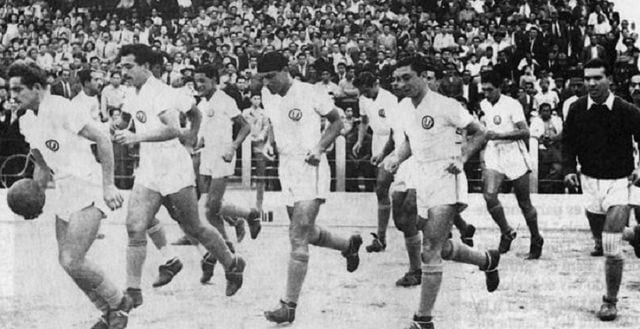By Laurent Bellaiche
Dr. José Pierrend graduated from medical school in his home country Peru; he then moved to the United States for his postgraduate training. He currently practices as an Internist in Arizona, the place that has been home now for almost 20 years. A soccer fan since his early childhood as well as an avid collector of soccer-related books and magazines; he continues to support his birth place team, Universitario de Deportes.
Can you explain what Rec.Sport.Soccer Statistics Foundation (RSSSF) is and what is its mission?
Let me explain first: R.S.S.S.F. stands for Rec.Sport.Soccer Statistics Foundation. As outlined on its website: “our major goal is collecting all kind of statistics, in particular league tables from all over the world, on football, and making this information available to those sharing our interest. Moreover, those statistics should be as reliable as possible, which means that our ultimate goal is to have correspondents from (and better yet in) the countries involved.”
What are the oldest soccer data of RSSSF?
RSSSF started posting data in 1994.
How did you become involved with RSSSF, and what are your fields of expertise with RSSSF?
I found RSSSF per happenstance while browsing the internet back in 1996 or 1997. Later on I contacted Mr. Karel Stokkermans one of the co-founders, and in 1998 I started to send data. I have sent data about Peru’s soccer (leagues, clubs, national team), South American club competitions, players awards (ie. Ballon d’Or), and some national teams caps and goals.

A chart tracking the performance of Universitario de Deportes in Peru’s Primer Division over the years noting final club placement by season.
What are the soccer statistics that intrigued you the most?
My recollections might be fading off, but if I remember correctly what brought me to RSSSF was researching in the internet about national teams’ top scorers and most capped players.
Based on your knowledge of soccer and its statistics, who do you think should have won the Golden Ball of the French magazine, France Football, but did not?
Great question. There have been a few ones. First allow me a digression; I would like to mention that I believe that since 2010 -when it temporarily merged with the FIFA Award–the Ballon d’Or lost part of its prestige, by involving other voters that than the original panel of experts/journalists. Also, it is somehow difficult to compare the awards form 1956 to 1994 and from 1995 onwards when it became an open contest for any player (initially playing in Europe and then in 2007 worldwide).
Going back to the questions: there are several ones I can think, but let’s focus on those where a player that never won the award should have won it (so it rules out 1964 when I think Luis Suarez (Spain) should have been the outright winner, but he had already won in 1960).
1978 is an example where under the rules of the day Robby Rensenbrink should have won, though under today’s rules Mario Kempes would have won without a contest. 1986 is debatable: I am not certain that Igor Belanov was the outstanding player of that year, certainly Maradona would have been the undisputed winner under today’s rules, but back in the day perhaps Alexander Zavarov was the Dynamo Kiev player that deserved the award, not ruling-out either Gary Lineker or Emilio Butragueno whom perhaps were more consistent throughout the whole year.
But my answer is without a doubt 1960: Ferenc Puskás should have won it for his season and perhaps also as a career homage. It is difficult to explain why Luis Suarez won and by such a margin (54 vs 37 points, which was a big difference in those days). I remember an email exchange with Prof. Bellaiche a few years ago, and his hypothesis that I agree with, is that perhaps geopolitics were involved: Eastern European jurors did not favor Puskás who had left Hungary after the 1956 incidents.


